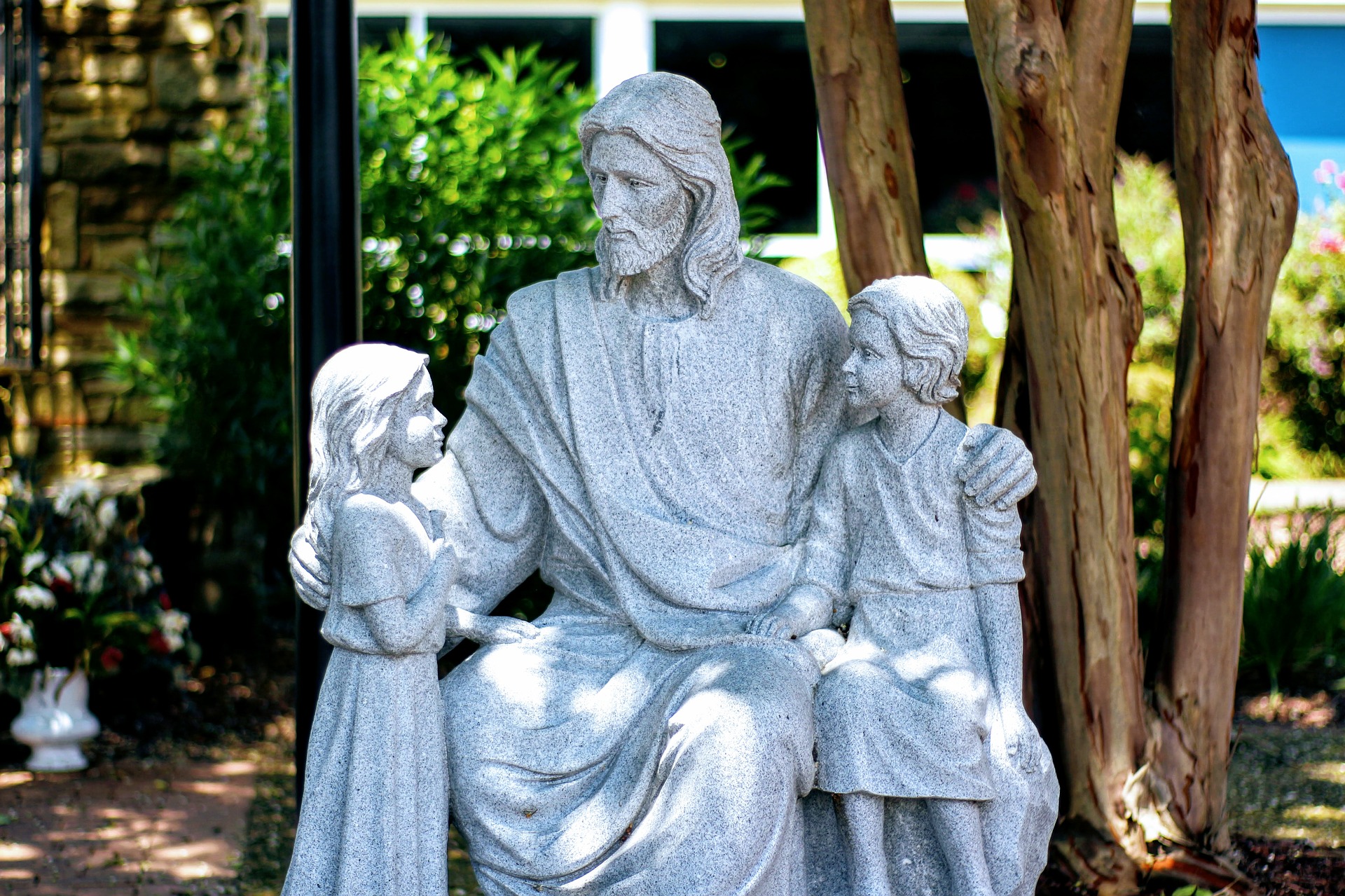In 1986 pop music reach its zenith with the release of “Everybody Have Fun Tonight” by the group, Wang Chung. Check out this excerpt to see what I mean:
Across the nation
Around the world
Everybody have fun tonight
A celebration so spread the word
Everybody have fun tonight
Everybody have fun tonight
Everybody Wang Chung tonight
Everybody have fun tonight
Everybody Wang Chung tonight
Everybody have fun tonight
Everybody have fun
Okay, so maybe it’s not a classic, but it was fun to sing especially for high school sophomores. One of my friends at the time couldn’t just sing along, though. Keith sat there thinking out loud, “What does it mean to Wang Chung? How do you do it? Is it a good idea for everybody to Wang Chung at the same time? If they do, what will happen to society? Wouldn’t it be more responsible to say, ‘Every third person Wang Chung tonight’?”
I never learned to Wang Chung and I’ve never met anyone who has. We needn’t petition Wang Chung to amend the song for fear of societal collapse.
Keith’s ponderings, when applied to WWJD, do require a response. If we’re going to aspire to do what Jesus would do and encourage everyone we know to do that same, we’d better ask, “What does it mean to do what Jesus would do? How do you do it? Is it a good idea for everybody to do what Jesus would do?”
For most people I’ve met, doing what Jesus would do requires reading through the Gospel accounts to form an algorithm of sorts and then overlaying it onto our lives. We read that Jesus spent time socially with sinners, so we go to share the gospel in the entertainment districts. He gave up his earthly possessions, so we sell what we have and give to the poor, or at least we think we should. He cared for marginalized people, so we volunteer at a soup kitchen. These are the kinds of things that Christ did which we admire, and aspire to reproduce.
This approach has some fatal flaws. For one, we tend to selectively purvey vignettes from the Gospels to construct our template. Most “radicals”¹ ignore Christ’s tendency to push people away to find a time of repose. In Mark 7:24 we’re told that he went to a pagan city and cloistered himself in a house, posting his disciples outside his door to keep visitors at bay. Many people imagine Jesus as always gentle. That image comes more from pastoral paintings of him than from the actual Gospel accounts. Recently on a Facebook group, I was accused of being un-Christ-like for dismantling Mormon doctrine. I directed my accuser to Matthew 23. Almost every Christian I’ve met would distance themselves from red-faced street preachers shouting at the “whoremongers” to repent, but that style of ministry much more closely resembles Jesus’ own than the one we’re comfortable with. I’m sure everyone would agree that Jesus was generous, but the Gospels present not a single vignette of Jesus giving anything to anyone. There was that one time that he paid the temple tax, but that four-drachma coin had never actually been in his possession.
Jesus got money from the mouth of a fish. Now, go and do what Jesus would do!

Christ’s spiritual mastery shakes our attempts at imitating him. Jeff Walling, the well known Church of Christ preacher, once related a story about a time that he came into his kitchen to get a glass of chocolate milk only to walk in on his son holding a glass containing the last chocolate milk in the house. Bro. Walling hinted around that he wanted some of the milk. As the willfully ignorant son put the glass to his lips, the preacher blurted out, “Now Billy, what would Jesus do?”
Billy responded, “Jesus would make more,” and he downed the entire glass.
Peter preached to Cornelius’ household that Jesus, “went around doing good,” but those good works consisted of miraculous deliverance and healing empowered by the Spirit of God. When we contemplate doing good because it’s what Jesus would do, we usually mean serving in some way or giving money to the needy. Very few Christians in America would answer the question, “What would Jesus do?” with “heal the sick, raise the dead, and cast out demons!”² Don’t get me wrong, I believe that Christ’s disciples can and will do these things in his name, but they are not the first things we consider when seeking to emulate his life. If performing these works is what it means to do what Jesus would do, then very few people will be found to have met the standard on the last day.
Besides our inability to rise to the miraculous example of Christ, there’s another more mundane problem with aspiring to do what Jesus would do.
We just can’t know for certain what Jesus would do in every situation by reading about what he did do. We can’t know for certain what anyone would do in every situation. Human personalities defy predictions. Variations in mood, recent history, and immediate environment affect choices and attitudes. In a way, we’re a bundle of reactions. As fully human, Jesus was affected by these factors as well. He had tendencies to be sure, but he was more than that. In a way, our attempts to formulate a behavioral decision-tree based on the accounts of his life dehumanize him to the point of making him inaccessible.
Even if we could come up with a list of things that we could say with absolute certainty Jesus always would do, adhering to that list wouldn’t be possible or practical for most believers. Jesus of Nazareth was the only person to live that specific life. Much of what he would do cannot be generalized to everyone. We might say that Jesus would always welcome and bless children, but Jesus never had children of his own. Applying the “always welcome and bless” value to parenting will no doubt produce a generation of self-indulgent brats.

It’s a pretty safe bet that Jesus would preach everywhere without regard for personal consequences, but it’s probably not best for a married father of four with a mortgage to stand up on his desk and call on his workgroup to repent and believe the gospel.
Jesus left his home and traveled throughout towns and villages. Does that mean a mother of small children should do the same? If so, should her husband? How about both sets of that couple’s parents and their aunts, uncles, cousins and so on? If so, who’s going to take care of the babies?
Forget about the implications of everybody Wang Chunging (or is it Wanging Chung?) for one night; an entire society of people living the life of Jesus as portrayed in the gospels is simply untenable.
As much as we’d like to think that everyone ought to just quit their jobs and do life together, not even the early church could make that way of life work for very long. If anyone was ever qualified to do what Jesus would do it was his twelve chosen disciples. They’d lived with him for over three years and experienced a rich taste of kingdom living. They had abandoned their homes and occupations for total immersion in Christ’s teachings, example, and community. After three thousand people joined their ranks on the day of Pentecost, those people were incorporated into fulltime kingdom living as Acts 2:42-44 describes:
They devoted themselves to the apostles’ teaching and to fellowship, to the breaking of bread and to prayer. Everyone was filled with awe at the many wonders and signs performed by the apostles. All the believers were together and had everything in common.
Christians often read that passage with a mix of longing and guilt. We see the experience of those first believers as the golden age of the church. We compare that description to our earthbound existence and long for the church to go back to that expression of the kingdom. There can be no doubt, we think, that those Christians were doing what Jesus did, or at least what the disciples did when they were physically following Jesus.
At this point, it’s probably important to make the distinction between what Jesus did and what he would do. I’ve been saying that we shouldn’t do what Jesus would do, but I don’t mean that we shouldn’t imitate Christ. I’m saying that the attempt to produce a template from the Gospels and live that way isn’t something Jesus – the real, living, dynamic person – would do.
The early disciples continued doing what they did when they were with Jesus, but with the addition of thousands more, that way of living became unsustainable. In the very next verse of Acts 2, Luke relays, “They sold property and possessions to give to anyone who had need.”
This example of radical generosity also places an expiration date on the golden age.
By the beginning of chapter 4, the church has experienced further growth with the number just of the men reaching five thousand. At the end of chapter 4, Luke lets us know that this growth wasn’t just numerical:
All the believers were one in heart and mind. No one claimed that any of their possessions was their own, but they shared everything they had. With great power the apostles continued to testify to the resurrection of the Lord Jesus. And God’s grace was so powerfully at work in them all that there were no needy persons among them. For from time to time those who owned land or houses sold them, brought the money from the sales and put it at the apostles’ feet, and it was distributed to anyone who had need. (Acts 4:32-35)
Luke understood that the coming of the kingdom of God would be accompanied by the abolition of need as wealthy citizens learned to share with the materially poor. We’re meant to interpret the selling of land and houses as tangible expressions of grace – and they are. But, as any financial advisor will tell you, paying bills by liquidating property won’t last forever. Without income, the system will eventually go bankrupt. By Acts 8, God mercifully allowed the First Church of Jerusalem to disband and disburse before scarcity turned the members against each other.

Everyone can’t do what Jesus did because during the years of his earthly ministry he was a financial liability. In Luke 8:1-3 we’re told that Jesus and his retinue soaked up the resources of a cadre of women who traveled with them. No doubt, Jesus’ supporters received back far greater treasures in terms of spiritual blessings, but those don’t feed hungry bellies. At some point, someone’s gonna have to not do what Jesus did so they and others can eat.
Just like Jesus, those who have been gifted and called to spend full time ministering the word of God have a right to support from those to whom they minister, but only a very small percentage of all believers is called to the full-time ministry of the word. Most believers will pursue God’s calling on their lives by maintaining honest secular occupations.
God means to express the beauty of his kingdom through the productive conduct of his subjects. High unemployment in a nation suggests a failure on the part of the government. The citizens of God’s kingdom exhibit his wisdom and righteousness when they go to work.
Christ commanded his followers to love one another as he loved us. Yes, we’re to imitate Christ but not by mimicking the behaviors we see in the Gospels. We can imitate Jesus because we’ve experienced his love at his cross. When we believe that sacrifice was for us and that God vindicated Christ’s trust, we imbibe his love and his faith. Resurrection faith and cruciform love are the DNA of God’s Son. When we express those traits in an incalculable variety of situations, we imitate Christ.
In my life and yours, imitating Christ will often require that we not do what Jesus did. Love requires that we give our resources to those in need. We must work so we can have those resources in the first place. To encourage obedience to the gospel of God’s loving kingdom, Paul chose to serve bi-vocationally. Here’s what he had to say about it:
For we know, brothers and sisters loved by God, that he has chosen you, because our gospel came to you not simply with words but also with power, with the Holy Spirit and deep conviction. You know how we lived among you for your sake. You became imitators of us and of the Lord, for you welcomed the message in the midst of severe suffering with the joy given by the Holy Spirit. (1 Thessalonians 1:4-6 NIV)
Surely you remember, brothers and sisters, our toil and hardship; we worked night and day in order not to be a burden to anyone while we preached the gospel of God to you. (1 Thessalonians 2:9)
Now about your love for one another we do not need to write to you, for you yourselves have been taught by God to love each other. And in fact, you do love all of God’s family throughout Macedonia. Yet we urge you, brothers and sisters, to do so more and more, and to make it your ambition to lead a quiet life: You should mind your own business and work with your hands, just as we told you, so that your daily life may win the respect of outsiders and so that you will not be dependent on anybody. (1 Thessalonians 4:9-12
Paul imitated Christ by not doing what Jesus did, and he encouraged others to do the same.
Footnotes:
- The word “Radical” has appeared recently in titles of books devoted to encouraging Christians to mimic the life of Jesus in the Gospels. Two that come to mind are Shane Claiborne’s, Irresistible Revolution: Living as an Ordinary Radical, and David Platt’s, Radical: Taking Back Your Faith From the American Dream.
- Matthew 10:5-8


